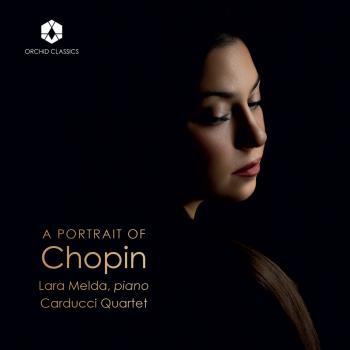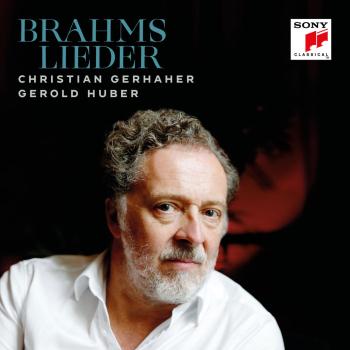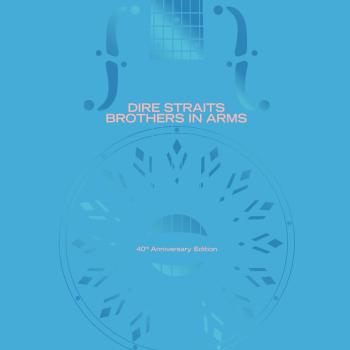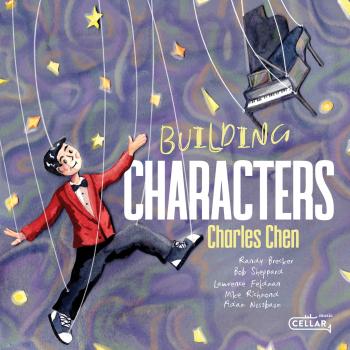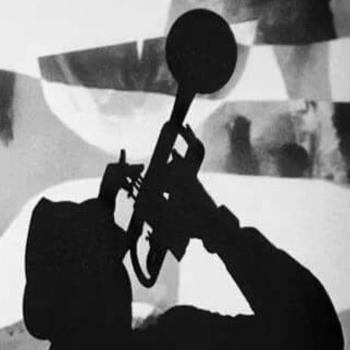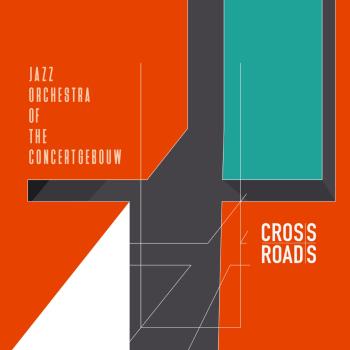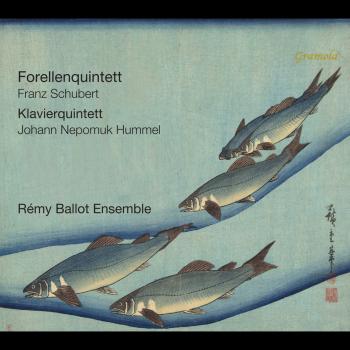
The Pied Piper of Hamelin and other Melodramas Jed Wentz & Artem Belogurov
Album info
Album-Release:
2021
HRA-Release:
26.11.2021
Label: Brilliant Classics
Genre: Classical
Subgenre: Instrumental
Artist: Jed Wentz & Artem Belogurov
Composer: Claude Debussy (1862-1918)
Album including Album cover
- Alexander Campbell Mackenzie (1847 - 1935):
- 1 Mackenzie: The Dream of Eugene Aram 14:22
- Harry Farjeon (1878 - 1948):
- 2 Farjeon: Idyll No. 1, Op. 28 02:04
- York Bowen (1884 - 1961):
- 3 Bowen: Song for a Child's Headache 02:28
- Margaret Amphlett (1928 - 1988):
- 4 Amphlett: The Stolen Child 02:50
- Harry Farjeon:
- 5 Farjeon: La belle dame sans Merci 06:48
- Edgar Allen Poe (1809 - 1849):
- 6 Poe: Fairy-Land 02:41
- Claude Debussy (1862 - 1918):
- 7 Debussy: Suite Bergamasque, L.75: III. Claire de Lune 04:31
- Alexander Campbell Mackenzie:
- 8 Mackenzie: Queen Mab 03:12
- Arthur Bergh (1882 - 1962):
- 9 Bergh: The Pied Piper of Hamelin 21:45
Info for The Pied Piper of Hamelin and other Melodramas
The melodrama, a genre combining recitation with music, flourished with particular vigour at the dawn of the 20th century. By that time, it had outgrown its original 18th-century form: no longer simply alternating between music and speech, late 19th-century melodramas (and their descendants) mainly consisted of texts declaimed over a nearly continuous and elaborate musical accompaniment.
To avoid being overwhelmed by the accompaniment and yet remain declamation as opposed to singing, the vocal part requires a particular style and great skill, as described by composer Stanley Hawley in an essay titled Recitation-music (1912): “Any colloquial quality of voice is undesirable, and is strongly to be condemned; something more than mere speaking is required for success. The natural conversational tones of the voice do not blend with the pianoforte, for a thin speaking voice has not sufficient body of its own to afford support to a musical accompaniment, and moreover, cannot impart strength of rhythm to the poem. […] The quality of the voice required is that golden mean between speaking and singing, which does not possess the monotony of a chant nor the affectation of what is best described as ‘sing-song’, but that sympathetic tone that can be coloured by the soul; for the tone expresses feeling, words define it.”
Wentz and Belogurov have taken Hawley’s advice to heart, searching out in the melodrama a dual art that merges words with music in the hope of revealing just how moving the genre can be, why it was so popular, and how it may be revived today.
A very special recording: 19-th century Melodramas for voice and piano!
The melodrama, a genre combining recitation with music, flourished with particular vigor as the 20th century dawned. By that time, it had outgrown its original 18th-century form: no longer simply alternating between music and speech, late 19th-century melodramas (and their descendants) mainly consisted of texts declaimed over a nearly continuous and elaborate musical accompaniment. The speaker used musical elements like pitch, timbre and rhythm to meld the words with the musical texture, taking care that they lost neither expression nor intelligibility in the process. The performance practice associated with the works recorded here paved the way for Schoenberg’s Pierrot Lunaire.
The composers included are Alexander Campbell Mackenzie, Margaret Amphlett, Harry Farjeon, York Bowen, and the authors include Thomas Hood, William Butler Yeats, John Keats and Edgar Allen Poe.
A unique concept realized by Jed Wentz, famous flutist and pioneer of the Historically Informed Performance Practice. His numerous recordings brought him excellent, 5-star reviews in the international press. He is seconded by Artem Belogurov, playing the fortepiano and dulcitone.
Jed Wentz, recitation
Artem Belogurov, piano, dulcitone
Jed Wentz
The American flutist and conductor, Jed Wentz, began his flute studies with Walter Mayhall in Youngstown, Ohio, and continued studying with James Walker in Pittsburgh, Pennsylvania. He studied both modern and historical flutes at the Oberlin Conservatory of Music with Robert Willoughby and Michael Lynn. He continued studies with Barthold Kuijken at the Royal Conservatory of Music in the Hague, where after three years he received a Soloist's Diploma.
Jed Wentz appeared regularly in the USA and Europe as a soloist and recitalist in the 1980's. He began his career as a virtuoso flutist but gradually turned to conducting. He has performed and recorded with groups such as Musica Antiqua Köln, Les Musiciens du Louvre, Capriccio Stravagante Paris and the Gabrieli Consort. In 1992 he founded the Holland-based early music ensemble Musica ad Rhenum (Music on the Rhine) and has appeared as soloist or conductor with them in numerous concerts throughout the world. In the years following, both Jed and his ensemble attracted much attention, regularly performing at the Concertgebouw Amsterdam and other major venues in Holland, as well as at many European festivals and numerous locales in the USA.
Mr. Wentz is on the faculty of the Amsterdam Conservatory where he teaches traverso and is a frequent lecturer at London's Royal Academy of Music. Since the 1990's, he devoted much time as well to the understanding and implementation of historically informed music practices. During the 1990's he wrote authored a series of scholarly articles examining 18th century performance practices. He has published articles in Early Music, Concerto, and Tijdschrijft voor Oude Muziek. He is pursuing his doctorate through Leiden University, with his research centering on the relationship between 18th-century staging and tempo in the tragedie en musique.
As a soloist and conductor Mr. Wentz has made well over 20 recordings for a variety of labels, including Vanguard Classics, Brilliant Classics, and Challenge Classics. His first recordings appeared in the early 1990's, and include the critically acclaimed 2-CD set of J.S. Bach sonatas (Vanguard Classics), as well as the Concerto Alla Rustica and other concertos by Antonio Vivaldi. Some of Musica ad Rhenum's members appeared in his early recordings. In 1995 the Fondazione Cini Venetia awarded Wentz a prize for the best recording of Italian music for his Pietro Antonio Locatellisonatas disc (Vanguard Classics). In the new century he remained active as a conductor and soloist, as well as a teacher. Among his most later recordings is the 2006 release on Brilliant Classics of the complete flute sonatas of Michel Blavet.
Artem Belogurov
Known equally for his “verve, wit, and delicatesse” (Boston Musical Intelligencer) and his “infinite tenderness” (Evening Odessa), Artem Belogurov has an extensive repertoire, ranging through four centuries of solo and chamber works. His interest in period performance leads him to historical keyboards, including clavichord, harpsichord, and fortepianos spanning the eighteenth and nineteenth centuries. As a soloist and in chamber groups, Artem has performed in a wide variety of venues, among them Lincoln Center, Library of Congress, Jordan Hall, Harvard Musical Association, the Universität der Kunste in Berlin, the Musikhochschule in Hanover, St Andrews University in Scotland, Tivoli Vredenburg in Utrecht, and Muziekgebouw in Amsterdam. His critically acclaimed album of solo piano works by the late nineteenth century American Romantic composers, recorded on a Chickering piano built in 1873, was released by the London-based label Piano Classics in 2015. 2019-2020 season includes a North American tour with Concerto Köln as a soloist and continuo player, performances with his duo partner cellist Octavie Dostaler- Lalonde and with the early music ensemble Postscript, of which he is a founding member. Artem won first and second prizes at international competitions in the Netherlands, Germany and Japan. After studying modern piano at the New England Conservatory in Boston, Artem moved to Amsterdam where he studied fortepiano and clavichord at the Conservatorium van Amsterdam with Richard Egarr and Menno van Delft and graduated receiving cum laude in 2016.
This album contains no booklet.

